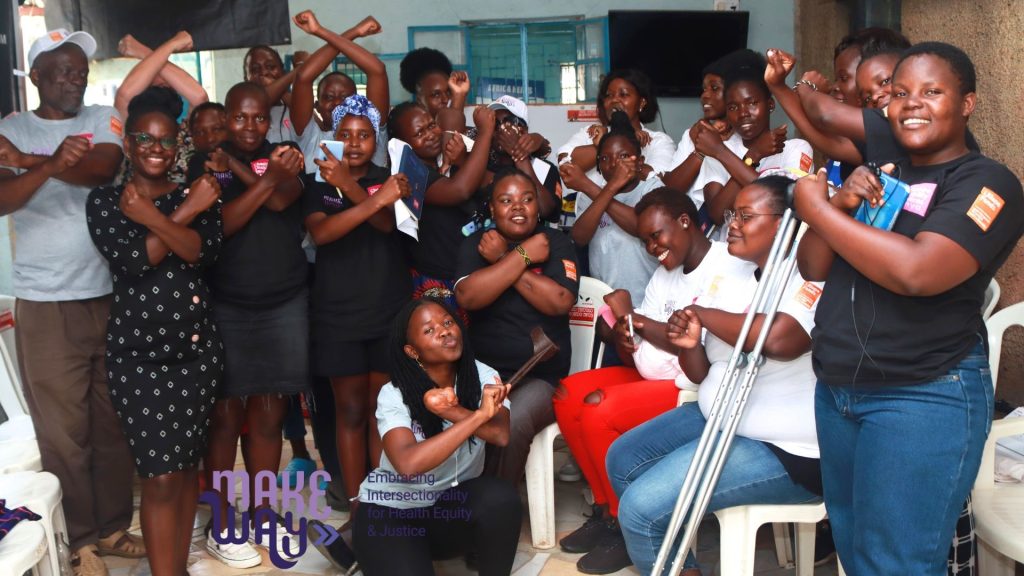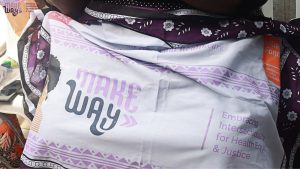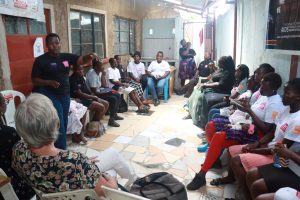Safe spaces in Kenya: A lifeline for young people with disabilities
 03 September 2024
03 September 2024

Where do you learn about sexual and reproductive health, budgeting for reproductive services, or menstrual hygiene? Who do you talk to about your educational aspirations despite having a disability, when your community, including your own family, ignores you? For young people with disabilities in Kenya, “safe spaces” provide answers to these pressing questions. Facilitated by the Make Way programme, these safe spaces play a crucial role in the lives of many.
Inclusive Support Hubs
Safe spaces in Kenya are specifically designed to offer supportive and inclusive environments where marginalized youth can access information on essential services, share experiences, and participate in social activities without fear of discrimination or stigma. These spaces are specifically vital for youth with disabilities in a context where they often face significant challenges, such as stigma, lack of accessibility, and limited access to information and services. Particularly in the area of sexual and reproductive health and rights (SRHR), these safe spaces are invaluable.
In the end of May 2024, Géke Appeldoorn, programme manager from Liliane Fonds, met several young women with disabilities who have found much-needed support in these safe spaces. Their stories illustrate the importance of these environments for their personal growth and development.
- Elisabeth lost her child because the nurses at the hospital did not help her with the delivery of her baby where she was admitted for. Instead, they focused on her leg, which wasn’t the issue. Now, she advocates for more safe spaces where women like her can speak out and express their experiences and needs.
- Lydia knew nothing about her reproductive rights before she came to the safe space. It was here that she first learned about sexual violence, her rights as a girl with a disability and the need to lobby for budget for accessible services. In the deaf community, there is significant interest in these spaces, where young people like her find the information and support, they lack elsewhere.
- Melvin comes to the safe space to learn more about SRHR. She was severely burned as a two-week-old baby and has since experienced neglect from her community and her family. Through the Make Way programme, she now feels welcome in the safe space. She has learned about the menstrual cycle and hygiene and now knows better how to take care of herself.
- Macy, who is visually impaired, has gained much more confidence since she discovered the Make Way programme. Through the safe spaces, she has met more youth with disabilities. For her, knowledge is power, and she loves learning and talking openly about difficult topics. She also shares about it with youth in her community.
These stories highlight the profound impact that safe spaces, supported by the Make Way programme, have on the lives of girls and young women with disabilities in Kenya. To see and hear more about their experiences, check out the videos available here:
See what Géke has shared about her experiences in Kenya on LinkedIn.





